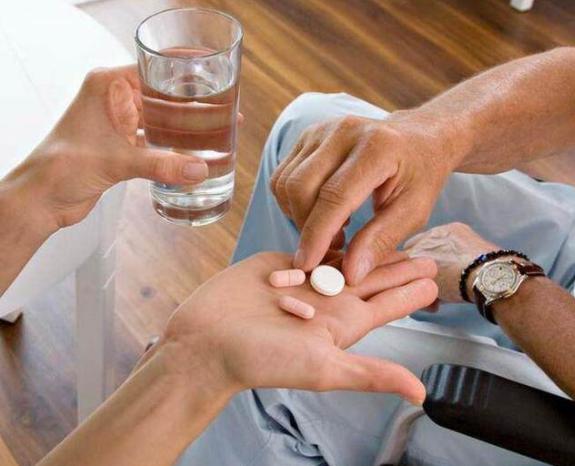Is it Possible to Cure Seminal Vesiculitis Completely?
Date:2022-06-28 click:0
Seminal vesiculitis will seriously affect male fertility, and will also bring a series of serious sequelae to patients, so patients with seminal vesiculitis must pay attention. Generally, the high incidence group of seminal vesiculitis is between 20 and 40 years old. Clinically, the incidence rate is very high. So can the seminal vesiculitis be cured?

If the patient can actively cooperate with the doctor's treatment, seminal vesiculitis is easier to cure. Seminal vesiculitis is a curable disease. Whether it can be cured depends on the choice of treatment methods. Each disease will have its nemesis. Appropriate anti-inflammatory drugs should be used in the treatment of seminal vesiculitis. The main clinical manifestations of seminal vesiculitis are hematospermia and large individual differences. Seminal vesiculitis can be divided into two categories: acute and chronic.
When the seminal vesicles are inflamed, the secretion of the seminal vesicles decreases, which can affect the motility of sperm; the amount of semen is insufficient, causing male infertility. Acute inflammation should be treated for some time after the symptoms disappear entirely, and chronic inflammation should be treated for more than 4 weeks after the symptoms disappear to consolidate the curative effect.
Treatment of Chronic Seminal Vesiculitis
Chronic seminal vesiculitis is primarily due to the lack of cure or incomplete treatment in the acute phase. Like acute seminal vesiculitis, it will affect fertility, making the treatment relatively more complex. In real life, treating chronic seminal vesiculitis is also a concern of many patients.
The treatment of chronic seminal vesiculitis is still mainly drug therapy. In the treatment of Western medicine, antibiotics are used for antibacterial treatment, and most of them are intravenous injections.
In addition, Western medicine can also use interventional therapy for chronic seminal vesiculitis. The main method is continuous instillation of antibiotics through perineal seminal vesicle puncture and catheterization under the guidance of rectal ultrasound. The advantage is that transrectal ultrasonography can display the image of the seminal vesicle, the puncture is easy to hit the target, and the success rate is high. The effect of direct medication is relatively significant. However, patients feel uncomfortable during the process, and few patients are willing to use this method.
Chronic Seminal Vesiculitis and Chronic Prostatitis
One of the reasons why chronic seminal vesiculitis persists for a long time is that the disease often occurs together with chronic prostatitis.
The prostate gland and seminal vesicle glands are accessory gonads of the male reproductive system. Their secretions constitute the central part of seminal plasma. The seminal vesicles and the prostate gland are adjacent to each other. If you put on a finger cuff and insert the index finger into the anus for 5-6 cm, you can feel the shape of the seminal vesicle. The ejaculatory duct, which is connected to the seminal vesicle, passes through the prostate and enters the urethra. Semen is ejected during intercourse through the ejaculatory duct.
From the perspective of anatomical and physiological functions, the seminal vesicles and the prostate are closely related. The inflammation of the two is not only the same in terms of infection route and etiology but also has similar clinical manifestations. Because the prostate and seminal vesicles both open in the posterior urethra, they are close to each other, and seminal vesiculitis often co-occurs as prostatitis.
Pathogenes that cause prostatitis can flow back into the seminal vesicles through the discharge of inflammatory prostatic fluid, resulting in seminal vesiculitis. The inflammation of the seminal vesicles also enters the prostate and affects the discharge of prostatic fluid. A study reported that 80% of patients with prostate infection combined with seminal vesiculitis.
The infection route of chronic prostatitis and seminal vesiculitis is mostly caused by the backward flow of the infected urine from the urethra, followed by lymphatic or bloodstream infection. The pathogenic bacteria are mostly Escherichia coli, Staphylococcus, and Streptococcus faecalis.
Due to the close relationship between the anatomical and physiological functions of the prostate and the seminal vesicles, if the patient has been treated with seminal vesicles for a long time, but it has no effect, they should go to the hospital to check the prostate.
Herbal medicine Diuretic and Anti-inflammatory Pill can play a perfect therapeutic impact on these two diseases. It is made of natural herbs, which can promote urination and solve frequent and urgent urination problems. It can cure these diseases of the symptoms and from the root causes.
You may also be interested in:



